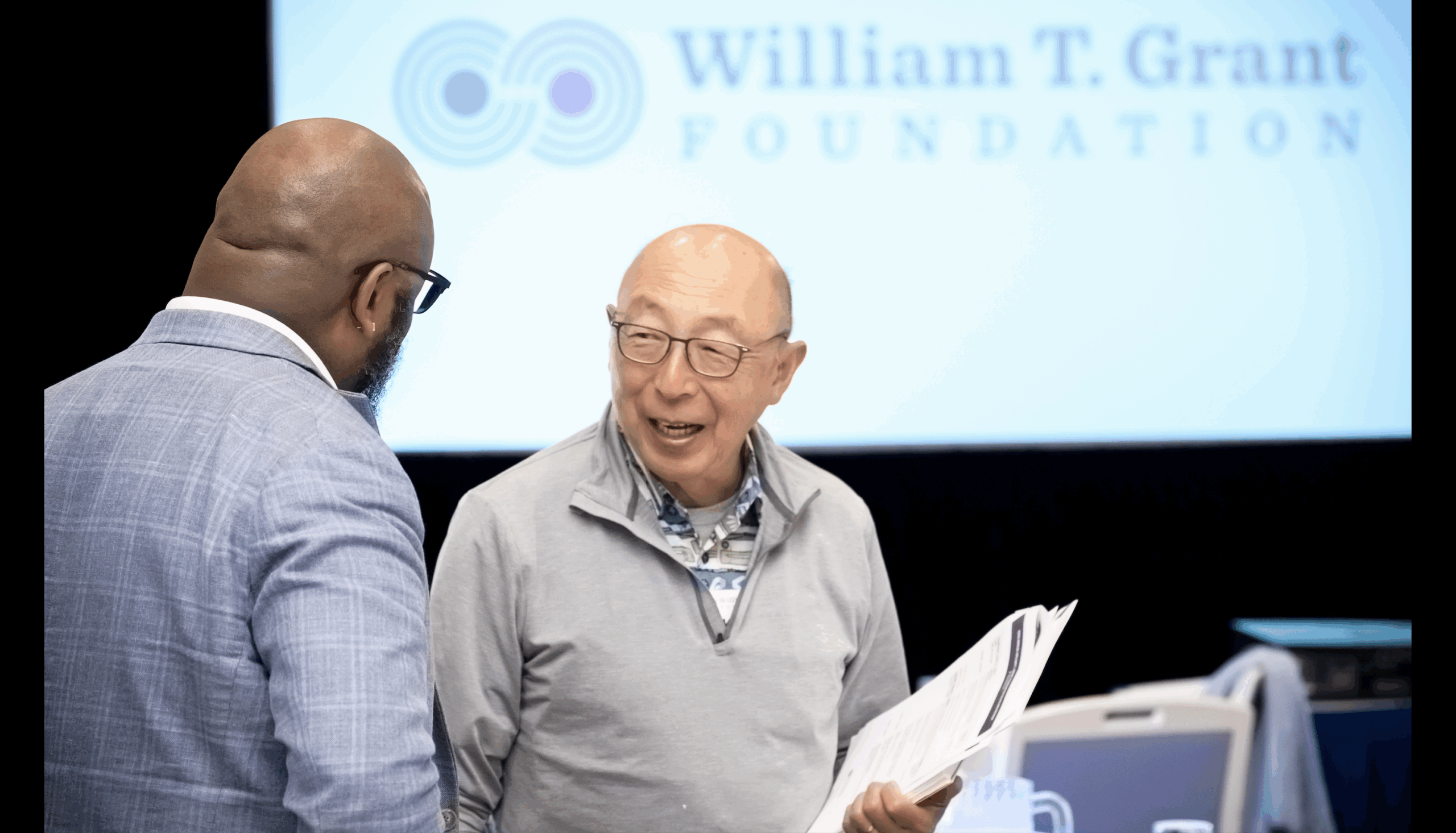Mentoring is a cornerstone of the Foundation’s approach to supporting the career development of junior researchers. For instance, while applicants of the William T. Grant Scholars program must propose measured theoretical and methodological risks that will stretch their expertise, they must also identify one or two senior researchers to serve as mentors to help them with this journey.
Like the Scholars program, the Foundation’s mentoring grants program seeks to further the field by investing in the career development of talented early-career investigators, albeit by focusing solely on supporting mentoring relationships. Having developed from a pilot program in 2005, the Foundation’s mentoring grants also emphasize the importance of diversifying the field, most notably in the program’s explicit focus on supporting the career growth of junior researchers of color.
The dual purpose of the mentoring program is to support faculty in developing awareness of the issues facing scholars traditionally excluded from higher education institutions and to strengthen the mentoring that these scholars receive. Originally available only as a supplemental award for William T. Grant Scholars, the mentoring grant is now offered to Scholars and major research grantees. Scholars and principal investigators can apply to the two-year opportunity in partnership with a mentee—either a doctoral student or post-doctoral researcher.
###
Mentoring requires maintaining open lines of communication, setting clear expectations, establishing mutual respect, and creating an environment that fosters growth. A key tenet of the Foundation’s philosophy is that these are all skills that can be learned. Likewise, being mentored is a skill too. Perhaps the most important thing that being mentored requires is a willingness to incorporate feedback with an open mind. This is not easy, nor does it come naturally to most of us. But with practice and intentional support, we believe mentees can adopt an orientation that will enable them to engage constructively with advice and feedback. Being mentored also provides an opportunity to practice the skills of getting what you need, or “managing up.” In the process of setting expectations and deadlines, for example, mentees can learn to negotiate for the resources (e.g., time, money, technology, etc.) that will enable their long-term success.
Perhaps most importantly, the Foundation’s support for mentoring aims to supplement the training more typical of academic settings. Academic training is usually very good at helping scholars navigate the skills needed to produce and consume research: Most programs include training specific to identifying gaps in the literature, constructing research questions, and choosing appropriate methods for answering them. Academic training is less clear, however, about the interpersonal and communication skills required to sustain the relationships necessary to be a productive researcher, making the “hidden curriculum” plain, or helping people understand how to create and maintain the robust social networks necessary to gain access to opportunities that will further a research career. The academy falls short in these areas even more so for junior researchers of color. For these reasons, the Foundation encourages mentors to have candid discussions about informal academic norms with their mentees.
Through our support for mentoring as an ingredient in career development, we hope that mentors will deepen their ability to support junior scholars across key lines of difference. We also hope that mentees will increase their capacity to conduct research while also growing the skills that will help them negotiate their first job offer, navigate department politics, and establish collegial relationships.
###
I recently spoke with my colleague Lenore Neier, communications manager at the Foundation, in a Q&A about the Foundation’s philosophy regarding mentoring. We hope our conversation (see the audio player at the top of this post) illuminates some of the thinking behind our approach to mentoring and career development and informs some of your own ideas as well.








